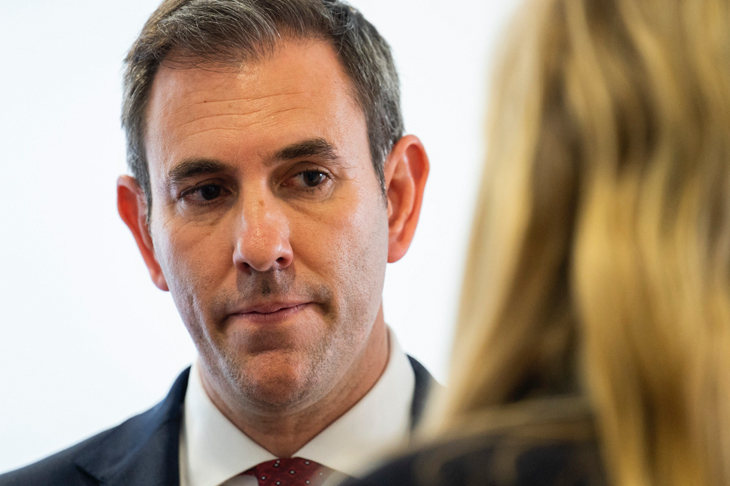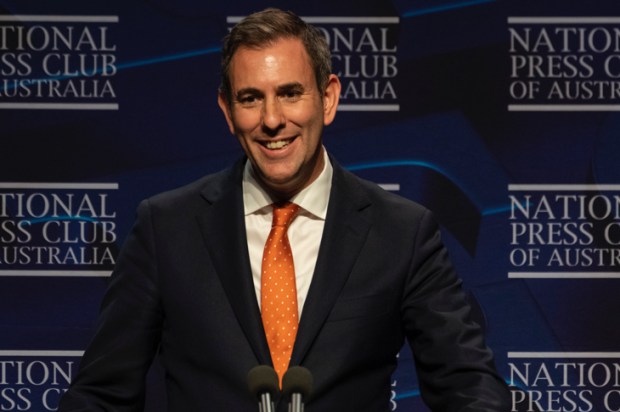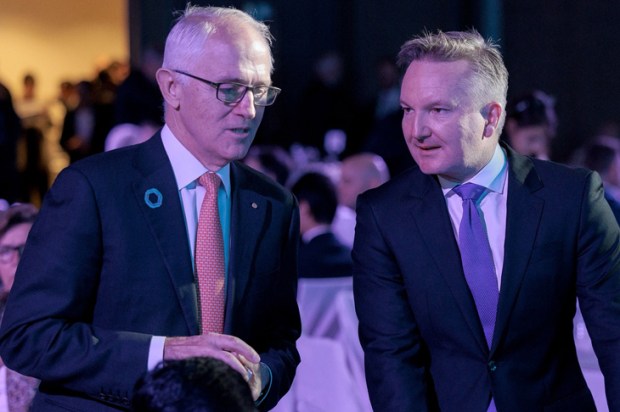It seemed like a good idea at the time – to hand down a budget in October in the event of a Labor victory. It would be an opportunity for the newly installed Treasurer, Jim Chalmers, to display his prowess as the new money man on the block. He could reset the agenda and give substance to the many election pledges Labor had made during the campaign (and before).
Budget time is always a tricky period for the opposition because so much media attention is focused on the Treasurer and the government. There’s the lockup itself, which adds a degree of frisson to the media coverage. There’s the broadcast speech and the Treasurer’s speech to the well-attended Press Club lunch the next day. There are other functions and loads of interest from the mainstream media generally.
(The lockup process is a shadow of its former self, by the way. It’s no longer confined to the large space in the bowels of Parliament House. Each media outlet has to arrange its own lockups, which are done in various cities. It’s only in Canberra where the Treasurer, Finance Minister and Treasury Secretary swing by, each pushing their preferred points of view.)
There was absolutely no technical reason why Jim had to hand down a budget this year. After all, former treasurer, Josh Frydenberg, had handed down one at the end of March. Had Jim taken the view that some pieces of legislation were required to make good on some election promises, this could have been done quite separately. There is also the requirement that a Mid-Year Economic and Fiscal Outlook statement be produced – it’s usually released in December, with a small bit of pomp, ceremony and policy announcements.
The core question now is: did Jim make a serious political blunder by handing down an October budget? After all, you can only hand down a first budget once and he has potentially blown his one chance. And let’s be clear, it was not the budget he would have preferred to deliver. But after the lure of Modern Monetary Theory and the scope for never-ending government spending was blown apart by damaging and rising inflation, he had no choice but to restrict his fiscal ambitions, at least for the time being. He also had to fess up about electricity prices rising by over 50 per cent in the next two years and gas prices up by 40 per cent. That revelation is not a highway to political popularity.
Mind you, it was a seriously curious feature of the Budget that, rather than predicting lower budget deficits over the forwards (the four year time frame over which budgets are presented), Jim took the courageous step of predicting growing budget deficits. From $37 billion this financial year, the deficit is projected to reach $50 billion in 2025-26. Even Jim’s predecessor and mentor, Wayne Swan, pretended that the budget bottom line would always improve over the forwards, even if it never did.
Needless to say, there is still quite a lot of silly current spending that is impossible to justify if the real aim is to repair the budget and to run fiscal policy that is compatible with monetary policy. But Labor had offered up all sorts of promises and it couldn’t really squib most of them.
Take the additional spending on childcare subsidies and extended paid parental leave: Jim (and Albo) likes to call these measures economic reform, investment rather than spending. We are then told that the spending of an additional $8 billion over four years will lead to 37,000 more full-time jobs. With the total number of employed persons currently over thirteen and a half million, this sort of number is close to a rounding error. We would expect a bigger number each month. In other words, it’s trivial.
But rather than describe the additional payments directed to women as simply transfers, Jim keeps a straight face by declaring that all sorts of economic benefits will flow from using taxpayer money to improve the profitability of childcare centres, given that childcare fees will almost certainly rise.
It’s a tactic that is used more generally – government spending portrayed as economically beneficial investment. But it’s not clear that anyone is really fooled – think here the burgeoning taxpayer dollars being devoted to the NDIS, more money for schools and universities, more money for Labor’s pet causes.
Sensing that some commentators and the hard-heads in the bond market are onto this sort of snake oil messaging, Chalmers also implemented the trick of taking some major spending items off-budget by creating new funds. We were told about these before the election, but that doesn’t alter the fact that they are a very bad idea; are likely to fail in their objectives; and add to the government’s gross debt that has to be serviced.
It is surely ironic that Jim complains about the rapidly growing line item in the Budget – interest payments on government debt – yet he does nothing to restrict the growth of debt. According to the Budget Papers, net interest payments jump from $13.6 billion this financial year to $25.6 billion in the last year of the forwards – a massive increase.
One aspect of the Budget that particularly tickled my funny bone, which given the five-odd hours I spent in the lockup was a blessed relief. It was the hilarious section on Affordable Housing. I’m buggered if I can figure out what was really being promised.
Jim talked about a million new homes in the next five years. But given that’s what you would expect to happen anyway, was he promising anything at all? The trick Jim employed was to use terms that play well in focus groups – Housing Australia Future Fund and New Housing Accord – and trust that no one bothers to follow up on the details. There’s social housing, affordable housing, cheap financing, shared equity – the list goes on, but no careful observer would be any the wiser.
So poor old Jim: he forgot that irrevocable political adage – events, dear boy, events. From his perspective, it must seem as though economic conditions turned on a dime – from a situation where he could order government spending almost without limit to one where a degree of penny-pinching is required. Of course, we need to dismiss all that guff about Jim and his pal Katy (Gallagher), the finance minister, going through the budget line by line to extract savings – as if. But Jim’s first budget was certainly much less fun than he thought it was going to be.
Got something to add? Join the discussion and comment below.
Get 10 issues for just $10
Subscribe to The Spectator Australia today for the next 10 magazine issues, plus full online access, for just $10.
You might disagree with half of it, but you’ll enjoy reading all of it. Try your first month for free, then just $2 a week for the remainder of your first year.














Comments
Don't miss out
Join the conversation with other Spectator Australia readers. Subscribe to leave a comment.
SUBSCRIBEAlready a subscriber? Log in